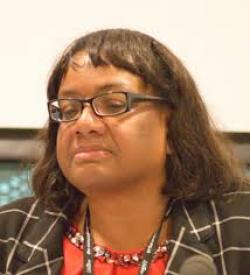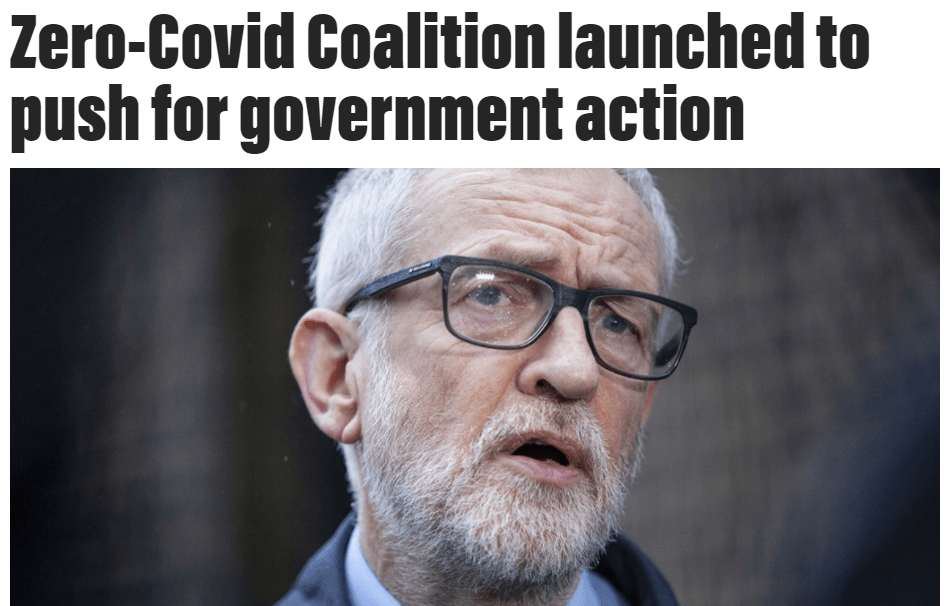by Mark Langabeer, Newton Abbot Labour member
The campaign will include a Zoom meeting on the March 6 to coincide with the expected re-opening of schools and a socially distanced demonstration on the March 13 to pressure the Government over its budget proposals.
This was announced by Helen O’Connor, a GMB official and chair of a recent zoom-meeting (February 17), held to discuss the issues involved, which was addressed by Diane Abbott and organised by the People’s Assembly and Morning Star.
The first speaker was Doctor John Puntis, who argued that vaccines and anti-viral drugs were not a magic bullet and that the current test, track and trace system was still ineffective. He spoke about the NHS reorganisation plans of the Tories, which give no commitments on stopping the outsourcing of services and are more about consolidating privatisation in the NHS!
Worst death rate
The next speaker was Labour MP Bell Ribeiro-Addy who reminded the listeners that Britain had the worst death rate in Europe and the lowest state sick pay provision in the OECD countries. She also made a reference to the ‘Do not resuscitate’ orders that had overtones of eugenics movement in the 1920s/30s. The response to the pandemic must include the global south and self-isolation must be affordable. Ending the lockdown too soon would lead to a never-ending vicious circle of lockdowns.
Jay Patel, from The Lancet, said that the threat from variants of the virus still remains and questioned how long the vaccines will provide immunity. A containment strategy is still part of the solution and Jay pointed out that Germany had adopted a zero-Covid strategy. Test, trace and isolation was successful when done locally. The national system, run privately, had far less success. General compliance with lockdown was high, but not with the need to isolate. Clearly, economic factors are at play here, he said.
The next speaker was Larrissa Kennedy from the National Union of Students, who claimed that student fees were bank-rolling landlords and many students were having to resort to food banks. While fat-cat university chancellors were protecting themselves, 13% of students were unable to access their course work and the pandemic was amplifying existing injustices. The current wave of rent strikes was the largest in student movement history. She declared her solidarity with all workers during this pandemic.
Illness linked to class and race
Rory Maclean, of Momentum’s national co-ordinating committee (NCG), is a trainee paramedic, and he described the source of the problem as underfunding. Chronic illness is linked to class and race. He stated that a third of ambulance staff had contracted Covid. He believed that the digital platforms were the means to get across the Zero Covid Strategy. He said that health workers didn’t want to be treated as heroes, but just to be paid properly.
Roy Wilkes, from the Morning Star, put the origins of the pandemic not in the wet markets in Wuhan, but on the environmental degradation caused by the financial centres in pursuit of profit. He thought that opening schools on the March 8 to be a reckless action, because they are a main source of transmission of the virus. He pointed out that not one employer has been fined for breaches of the lockdown measures, but that wasn’t the case for ordinary individuals. Only a mass movement can force the government into a change of direction.
The next speaker, Sabby Dhalu, told the meeting that migrant workers and the disabled have suffered most. White people are twice as likely to have the vaccine. This is a result of institutionalised racism; there was lack of trust within the BAME community with authority. It is the lockdown, not the vaccine roll-out that has reduced infection rates.

No-one is safe until everyone is safe!
Finally, Diane Abbott, Labour MP and former shadow Home Secretary, spoke, accusing the government of having both the worst death rate and the worst economic outcome in Europe. The pandemic highlighted the inequalities, with black people being four times as likely to die from Covid and the reasons for this lay in social conditions.
She quoted a report from the TUC which said that black people were twenty-six times more likely to be fired than whites. Huge disparities between rich and poor were evident and black women were four times more likely to die when giving birth. As she put it – “No-one was safe until everyone was safe!”, not just in Britain but internationally. This public health crisis has found the private sector wanting, she said, and she called for a greater public sector role in the future.
I found the meeting informative and I will try to tune into the next one. Although the ideas presented at the meeting point in the right direction and allude to the fact that the current system always puts private profit before people, I felt there was a failure to draw the necessary conclusions.
As a minimum, the Zero-Covid Coalition should include a demand that the major banks, and financial institutions, and big pharma should be brought into public ownership and that all current out-sourced and privatised health services should be brought back in-house. This would secure the means for a well-funded health and care system in which the blunt tool of lockdown could be avoided in any future pandemic.



